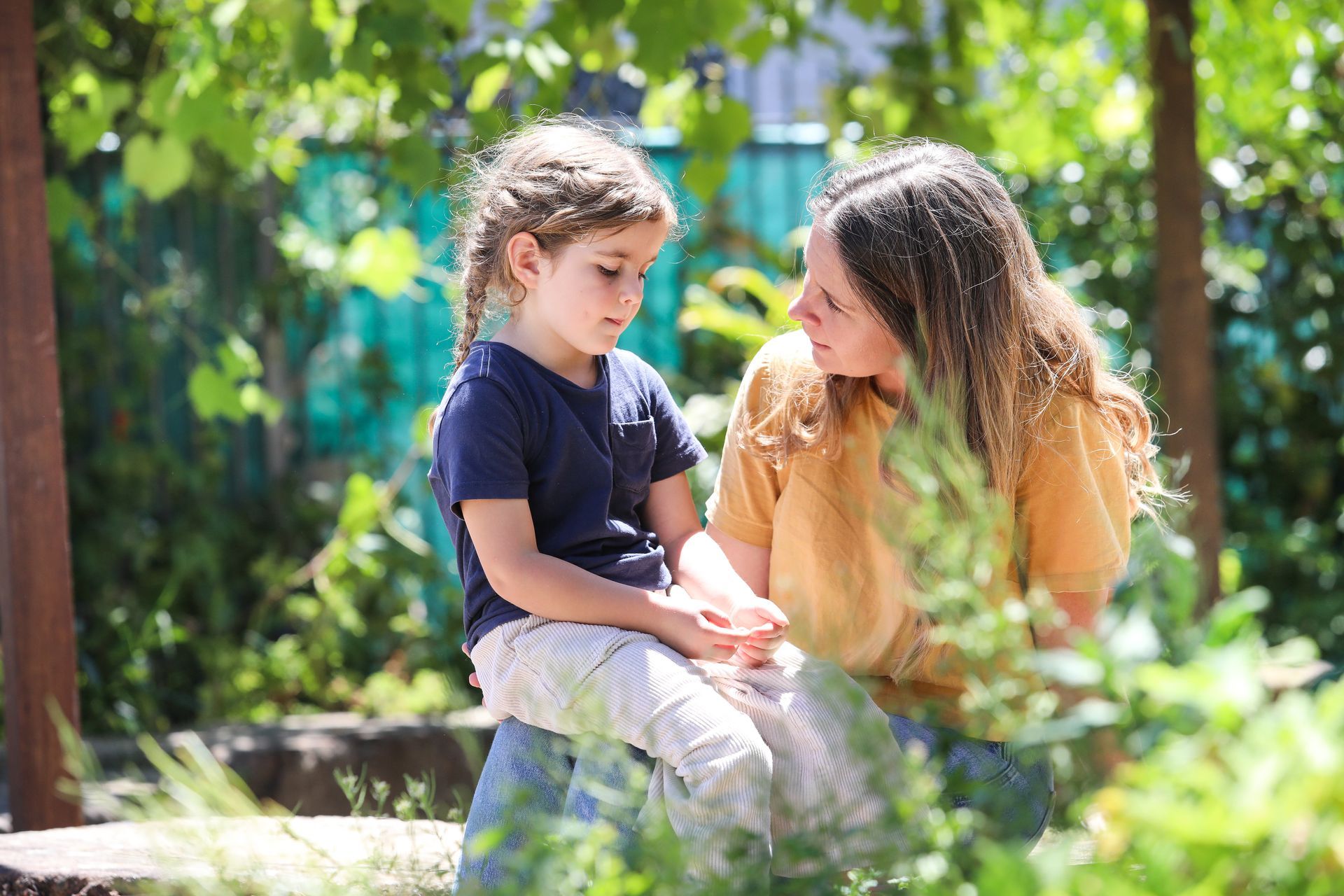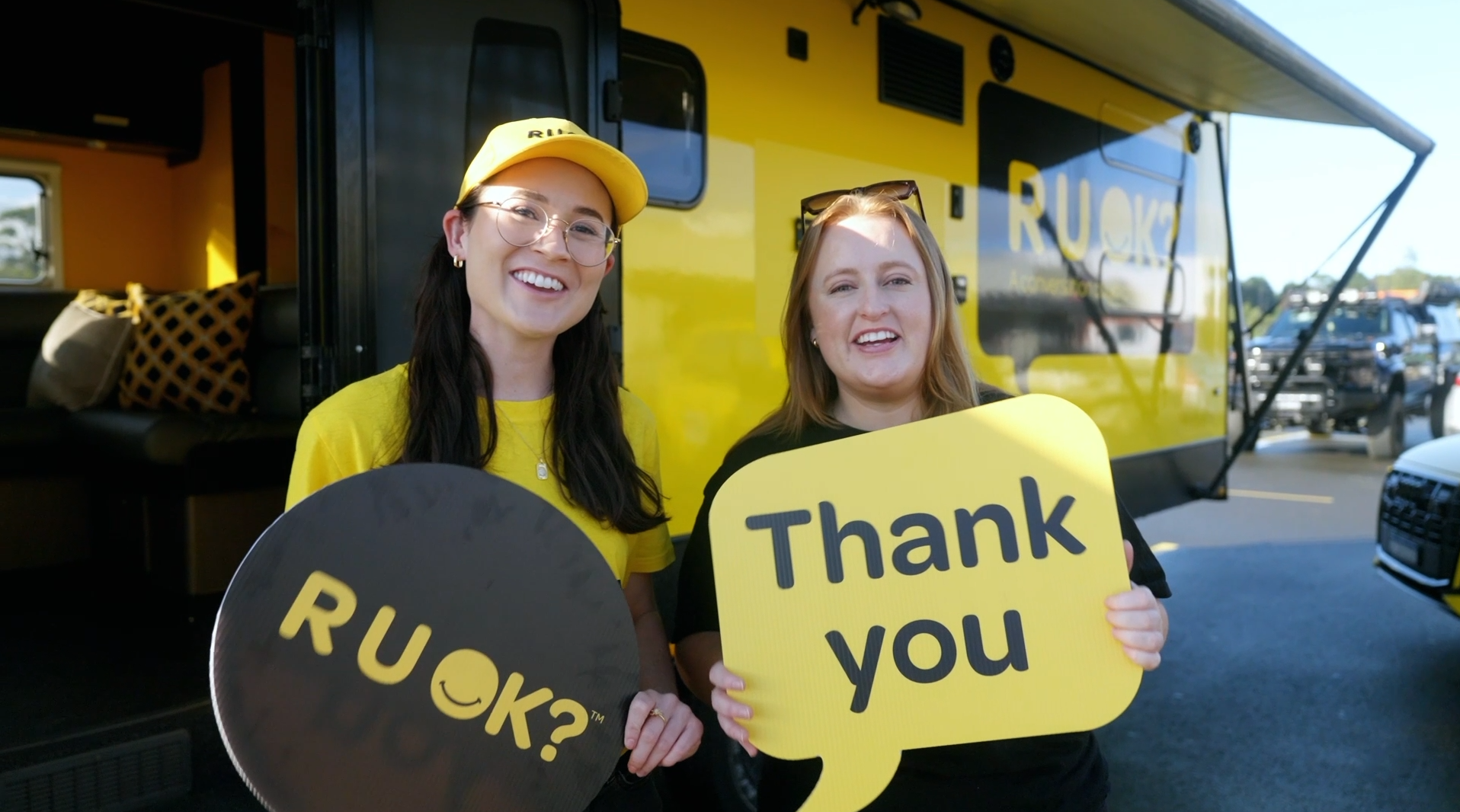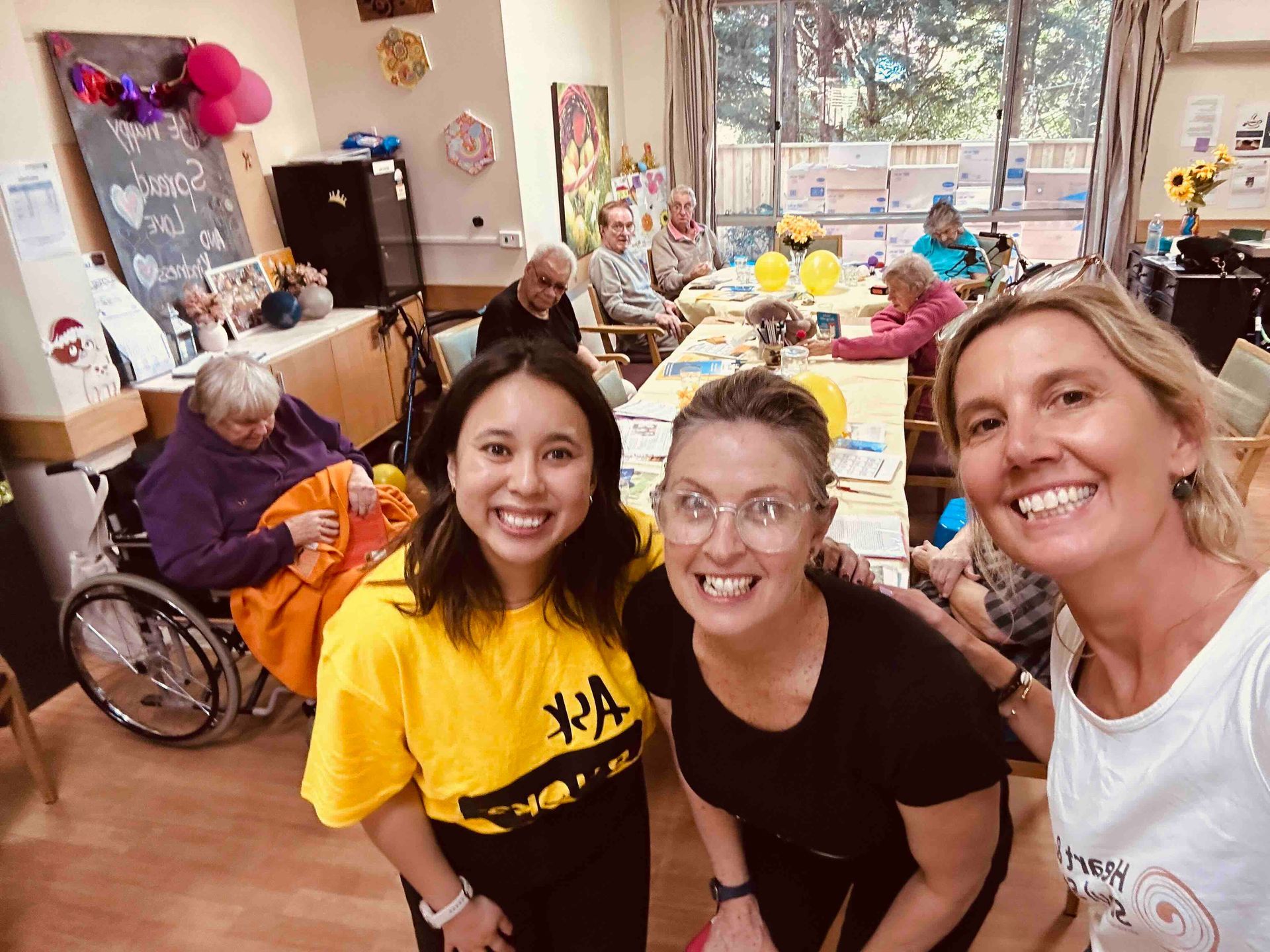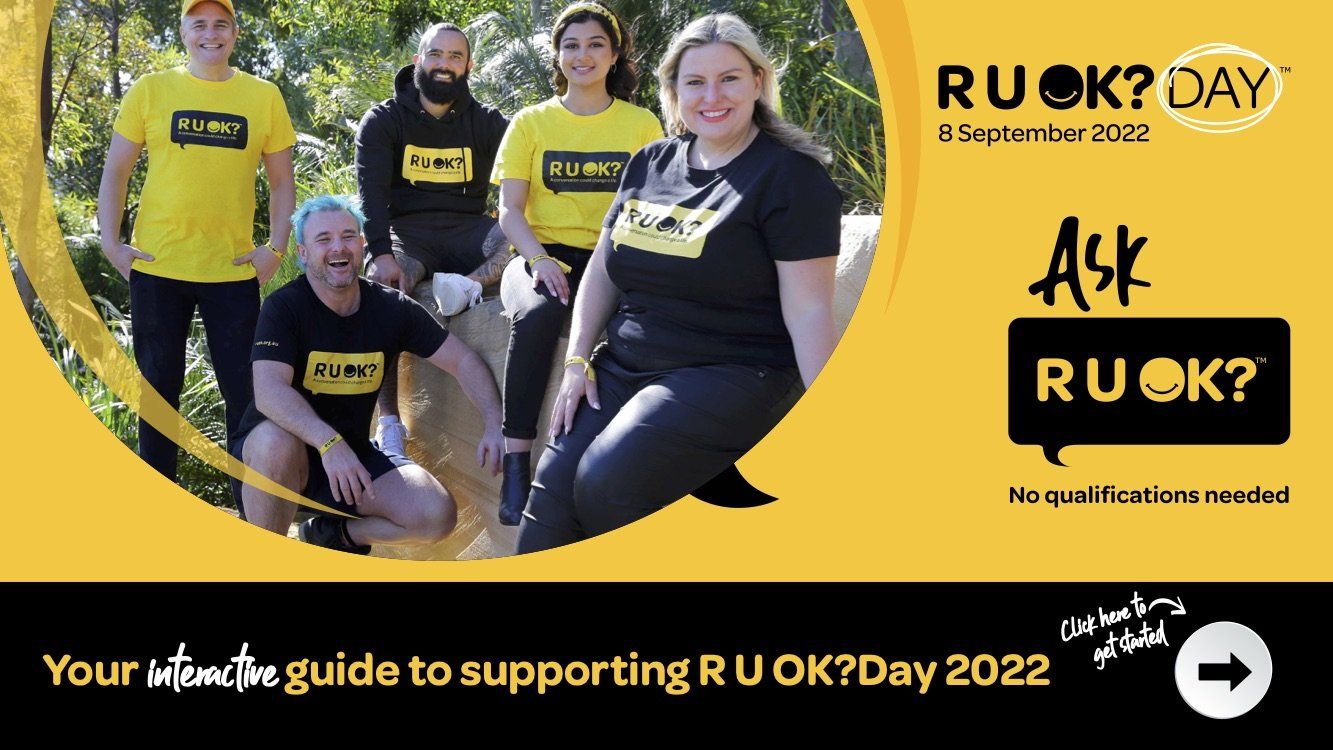You don't need to be an expert to lend support in the workplace
You're concerned about a colleague but don't know what to say. Perhaps your workmate has told you they're not OK. You don't need to be an expert to help them. We've all got what it takes to support others in the workplace.

Our working lives have changed dramatically over the last couple of years.
For many Australians, 2021 was about working remotely and coping with isolation and other impacts of the pandemic. Now a lot of us find ourselves in hybrid home-office situations. This has brought fresh challenges at work, on top of the regular day-to-day stresses we all encounter.
Debra Brodowski is the National Manager of Psychological Services at the Centre for Corporate Health.
With R U OK?Day (Thursday 8 September 2022) around the corner, we chatted with Debra to gain an understanding of the challenges people are facing in the workplace and what we can all to do support our colleagues.
Debra, thanks for joining us. What are some of the things people are struggling with right now in the workplace?
For a lot of people it’s about balancing hybrid home-office work. You might have asked yourself questions like, ‘how do I know when do I come into the office?’, ‘am I connecting with people in the office when do I work remotely?’, what are the expectations placed on me?’ or ‘how do I switch off when I’m at home?’.
There’s the pressures that come with everyday life such as health issues, financial pressures, cost of living increases and the impact of natural disasters, like the unprecedented rain we’ve seen on the east coast of Australia this year.
What we're seeing is levels of anxiety on the rise at the moment, because there's just so much people have to still anticipate and respond to and they're exhausted. Getting up, getting out and trying to do a good job is harder than ever.
That’s certainly a lot to deal with. How can we support people we work with who might be experiencing these things or are facing other challenges?
Checking in and asking ‘are you OK?’ is a great place to start. The R U OK?Day message this year is that no qualifications are required to ask the question. People can make a powerful and positive difference to someone who's struggling or might not be OK. And they can do it in real time, rather than someone having to wait for a health professional to get that support.
When we check in with friends, family members, peers or people in your team, that's immediate support and it allows the individual to know that they’re not alone, they’re safe with you and that you actually care.
It doesn’t always have to be an R U OK? conversation. Just checking in with colleagues, asking them how they’ve been and what they’ve been up to can open the door for them to talk about what’s going and what they might be struggling with.
To get involved in R U OK?Day 2022 and access resources, tips and ideas to help you drive genuine change in your workplace, school and community visit click here.
What if I’ve asked and a colleague tells me they are not OK? I’m obviously no expert, but what can I do to help that person?
Listening without judgement is one of the best things you can do for them. In terms of what you can say, you can try some of the following, depending on what they've told you.
- What supports do you have in place at the moment?’
- Have you found anything before that has helped you manage this?
- Do you have an EAP (Employee Assistance Program). If so, let’s reach out and book an appointment.
- Do you have a psychologist or a psychiatrist, or a GP you can talk to? And if not, is there one we can find in your area?
What about workplaces and teams? Are there any initiatives that promote wellbeing and looking out for each other?
In the hybrid working world, anchor days, where your team are all in the office, are great. They stop people feeling like they’re a ship sailing out at sea, and you can organise coffee or lunch catch-ups together. That can really help wellbeing and connection.
The buddy system is also quite common. I hear leaders often say they’ve got a big team and find it hard to check in with everyone. The buddy system can allow that and encourages connection. You can ask your buddy, “how are you going this week? what's working well, what are you finding challenging?”.
Teams can also have wellbeing goals. Meetings are often focused on KPIs and tasks, and rightly so, but you can also set wellbeing goals. “How's everyone switching off? What did people do on the weekend? Did anyone play some sport? Did anyone go out for a walk?” It gives peers and leaders a chance to notice changes in behaviour and privately reach out and ask someone if they’re OK if they're worried.
DEB’S TOP TIPS TO SUPPORT COLLEAGUES
- Look out for changes in peoples’ behaviour. If they don't seem themselves, reach out and ask if they’re OK.
- Adopt wellbeing strategies you can practice in your workplace and with your team.
- Make connecting and asking R U OK? a part of your work relationships.
- Practice self-care. You can't support others if you aren’t looking after yourself.
- Understand your role as a connector to professional support for someone who needs it.
If you or someone you know needs some extra support, visit our directory of national support and services here. For support at any time of day or night, call Lifeline on 13 11 14.






















